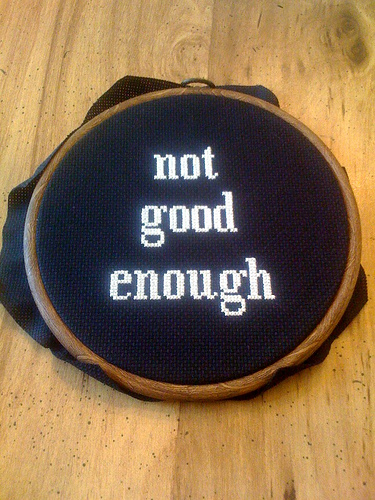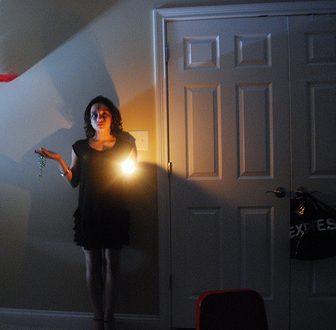Becoming a Sensitive, Responsible Fiction Writer
This is a post drawn from my upcoming workshop at Writing for Change Worldwide, an annual conference (this year online and weeklong) presented by SF Writers Conference. If you are interesting in writing for change, be sure to attend this conference! Here are the details.
If you’re a fiction writer, you create characters. Hopefully believable ones. Characters your readers love and hate. Characters that pop off the page and take readers on an exciting journey.
Regardless of whether you write lighthearted comedy, serious relational dramas, complicated romance, or adventurous fantasy, more than mere authenticity is needed—if you want to be a sensitive, responsible writer.
What is involved in being a sensitive, responsible writer? Sensitive how? Responsible how?
For writers who care about equity, racial justice, and e pluribus unum, it requires a self-check.
Not only are all of us ingrained with some measure of racial bias, we often don’t recognize it. This is particularly true when it comes to writing fiction. Our tendency is to default to what we’re familiar with, and that brings into play stereotypes, tropes, assumptions, and other (sometimes subtle) travesties that do a disservice—if not outright harm—to others.
In order to cease perpetuating these hurtful acts, we need to acknowledge this truth that Daniel José Older shares: “We are always writing the other, we are always writing the self. We bump into this basic, impossible riddle every time we tell stories. When we create characters from backgrounds different than our own, we’re really telling the deeper story of our own perception.”
So what are some steps we can take to be sensitive and responsible in our description of characters?
- Do real When digging into a culture or ethnicity not your own, beware of “experts” who bring in stereotypes and hidden biases. Actually talk to people of that group and listen to what they say. When I wrote my novel Intended for Harm, I talked to some black women in my church about the scenes I was writing, and I vetted my dialogue with them, which was not only culturally but regionally specific. I had them read my scenes and give me feedback. I was concerned with “getting right” not just dialogue and description but authentic behavior and concerns.
If you’re writing characters from a culture you’re unfamiliar with, and you don’t know anyone personally from that culture, find someone. People are out there. Get into dialogue with them. The Hippocratic Oath can apply here as well: “First do no harm.”
- Be humble. I love what Older says: “The baseline is you suck.” In our society everyone’s an expert. Everyone has an opinion and defends their right to that opinion. To write authentically, sensitively, responsibly, we need to be humble. To listen, we have to shut up.
- Be careful with character roles. Don’t slip into those defaults I mentioned. Don’t have only white people the CEOs or team leaders in a company and people of color as the janitors. Don’t relegate a person of color to being “the best friend” instead of giving her her own needs and goals. Don’t show minorities as the white man’s burden. Watch out for the white person always in the role of saving the black person. Don’t misappropriate culture (like showing a Hindi wearing a bindi as merely a fashion accessory). And, for heaven’s sake, don’t make minorities represent the bad or evil element in your story.
- Don’t use race as the defining element. If you’re a white writer, you might tend to assume all your characters are white. And then if you bring in a non-white character, you single that person out by describing their ethnicity (but not the white characters). Watch for that.
- Be careful with language and dialect. Here, too, you can default to stereotypes if you have Asian characters, for example, speaking broken English, or you have every black character talking smack the way you hear on Comedy Central.
Sure, this isn’t easy. You are going to make mistakes. Be teachable. Apologize when you offend, and make the necessary corrections. Don’t be afraid to ask people of other ethnicities what is appropriate to say and use as description for their ethnic group.
And before you get too far in writing characters of other ethnicities or voices, you should ask yourself why you want to do so in the first place. Alexander Chee says: “If you’re not in community with people like those you want to write about, chances are you are on your way to intruding.”
Avoiding describing characters’ ethnicities or gender or “otherness” is taking the coward’s way out. In this age of oppression, we writers need to do more than avoid unpleasantries or accept diversity. We need to play our part in breaking down the walls of divisiveness and inviting inclusivity.
As Mo Black says: “For the duration a reader is engaging with your work, they are trusting you with a piece of themselves. You are responsible for that little piece. You can choose build people up, or tear them down. To ignore this is at best an act of gross negligence.”
If you do a self-check and ask: “Should I be telling another’s story” or “Do I have a right to tell that story,” the answer might be no. Be sure you have a good reason for putting that minority character or #othervoice in your story, and make sure you’re doing it in a sensitive, responsible way.
Featured Photo by Gemma Chua-Tran on Unsplash












Instead of “sensitive” let’s deal with being accurate and what’s relevant to the story.
Today’s Hollywood has destroyed their stories in TV and movies due to pandering to politics–this has destroyed stories and really pissed off viewers.
Do a search on the Critical Drinker youtube channel. Look at the comments of people. We’re fed up with all the propoganda for what’s the preferred race and what is not. Plus all these “genders” being rammed down our throat–we’re fed up with that too.
Every show has the gay-lesbian scene rammed into it. The TV series The Politician is so ridiculous even my gay friends can’t stand it.
Hanna season two is another example of bias being rammed into the story. Unless your female human isn’t a human but has super strength and speed, she can’t compete with male assassins. Sorry, doesn’t happen. It wasn’t Janet Borne for a reason.
Strong female characters like Erin Brokivich…nope, those aren’t done either. Why? Because those characters THINK rationally and use Sherlock Holmes style logic.
Today’s propganda fiction has no logic, just throws things together like they’re supposed to add up–because it was stated.
Catwoman movie bombed for this reason. Star Wars movies have bombed. If you don’t want your story to be thrown into the trash 50 pages in–get realistic and get relevant.
If you’re worried about someone getting offended–just make sure that what you’re writing about is relevant to the story.
The above offends most every snowflake out there. The term snowflake offends a snowflake.
A snowflake is NOT a heroic character. Captain Jack Sparrow: “sticks and stones, love…” . Jack wasn’t offended by your choice of words–he was heroic. Same went for Elizabeth and the rest of that first movie.
The amount of complaints for the new fiction is IMMENSE. if you write with the “new fiction” rules–you will NEVER be JK Rowling. EVER.
Hi, Susanne. Thank you for this timely, beautiful, and compassionate article. As a Black Lesbian writer, I get quite annoyed with the fiction offerings portraying Black people, and Lesbian and Gay people. The vast majority of books and movies about Black people involve sex, poverty, prostitution, drug dealers, and gang violence. The vast majority of books and movies about Lesbian and Gay people revolve around indiscriminate sex, alcohol, and drug use. Like all people, we are finely nuanced with jobs, businesses, goals, failures, idiosyncrasies, hobbies, emotions and feelings, favorite colors, grief and loss, bullying, and everything else experienced by people in the heterosexual, White world. We all have something we want, and we deserve realistic character arcs that go beyond the protagonist settling down to a life of fidelity with one partner. I also take issue with the way most books are written with respect to race or ethnicity, which you mentioned. Unless a character’s ethnicity is described, the biased assumption is that the character is White. Characters are challenging and demand the writer’s utmost sensitivity and compassion. Dialogue with people with whom we are not familiar is the key. I appreciate your support and allyship. Happy writing to all!